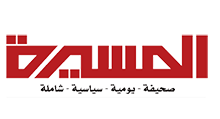Hypertension: Medical Diagnosis, Symptoms, and Therapy
Hypertension, also called high blood pressure, is an usual condition that influences numerous individuals worldwide. It is frequently referred to as keto burn nedir the “quiet awesome” since it can have no signs and symptoms as well as yet lead to severe health and wellness complications. As a result, early discovery and also proper diagnosis of high blood pressure are crucial in managing this chronic problem. In this write-up, we will certainly discover the various approaches as well as tests used to detect hypertension, along with the signs and symptoms as well as treatment choices offered.
Diagnosis of High blood pressure
The diagnosis of hypertension involves numerous steps and analyses to identify a person’s blood pressure degrees and also total health and wellness condition. The procedure typically includes:
1. Measurement of Blood Pressure: The very first step in biodermalix precio diagnosing high blood pressure is the measurement of high blood pressure. This is usually done utilizing a sphygmomanometer, a gadget that includes a blow up cuff as well as a pressure gauge. The dimension gives 2 analyses: systolic pressure (leading number) and also diastolic pressure (lower number). A regular high blood pressure analysis is around 120/80 mmHg.
2. Numerous Blood Pressure Analyses: A single high blood pressure analysis might not suffice to diagnose high blood pressure. For that reason, several analyses are usually taken control of a time period, on different days, and also in numerous setups (e.g., at home as well as at the physician’s workplace). This assists to rule out the possibility of a short-term high reading due to tension or other factors.
3. Category of High Blood Pressure: As soon as multiple blood pressure readings are gotten, the results are identified into various classifications. The American Heart Organization (AHA) classifies blood pressure right into four groups: typical, raised, stage 1 hypertension, as well as phase 2 hypertension. This category is based upon the standard of two or more analyses taken on 2 or more events.
- Typical: Blood pressure is less than 120/80 mmHg
- Elevated: Blood pressure is in between 120-129/ much less than 80 mmHg
- Stage 1 High Blood Pressure: Blood pressure is in between 130-139/80 -89 mmHg
- Phase 2 High Blood Pressure: High blood pressure is 140 or higher/90 or greater mmHg
4. Added Examinations: In many cases, extra examinations might be recommended to evaluate the influence of hypertension on a person’s health. These tests might include blood examinations to examine cholesterol and blood glucose degrees, pee tests to examine kidney function, and electrocardiograms (ECGs) to take a look at heart wellness.
Signs and symptoms of Hypertension
Hypertension is usually described as a silent condition since it may not present any type of visible signs and symptoms in its early stages. Nonetheless, as the blood pressure surges and also continues to be unrestrained, particular symptoms might emerge. These signs and symptoms can consist of:
- Headaches
- Dizziness
- Lack of breath
- Upper body pain
- Blurred vision
- Fatigue
It is necessary to note that these signs and symptoms are not unique to hypertension and also can be attributed to various other medical conditions as well. Therefore, it is important to go through normal high blood pressure checks to make certain early discovery as well as appropriate management of high blood pressure.
Therapy of High blood pressure
The treatment of hypertension concentrates on lowering high blood pressure levels and minimizing the danger of associated wellness complications. The therapy plan might differ depending upon the seriousness of high blood pressure as well as a person’s total health. Typical therapy strategies consist of:
- Way of living Alterations: Making healthy and balanced way of life modifications is frequently the initial line of defense against hypertension. This consists of embracing a well balanced diet abundant in fruits, vegetables, as well as entire grains, minimizing sodium consumption, participating in routine exercise, keeping a healthy and balanced weight, restricting alcohol consumption, and avoiding cigarette use.
- Drug: Sometimes, lifestyle adjustments alone might not suffice to control high blood pressure. In such circumstances, healthcare experts might recommend medication to help lower high blood pressure. There are a number of kinds of medicines available, consisting of diuretics, beta-blockers, ACE inhibitors, ARBs, as well as calcium channel blockers. The choice of drug relies on different variables, consisting of the individual’s general wellness, prospective side effects, and medication communications.
- Surveillance and also Follow-up: As soon as identified with high blood pressure, regular surveillance of high blood pressure is vital. This can be done in the house utilizing a home high blood pressure screen or by going to a healthcare expert. Routine follow-up sees are also essential to examine the efficiency of the treatment strategy, adjust medication dosages if essential, as well as resolve any type of issues or inquiries.
Verdict
High blood pressure is a prevalent problem that needs appropriate diagnosis, management, and treatment to stop difficulties and preserve overall health and wellness. Regular high blood pressure checks, way of life adjustments, as well as adherence to prescribed medicines are important in taking care of hypertension successfully. If you experience any type of symptoms or have concerns concerning your blood pressure, it is important to get in touch with a medical care specialist for an exact medical diagnosis and suitable treatment.

